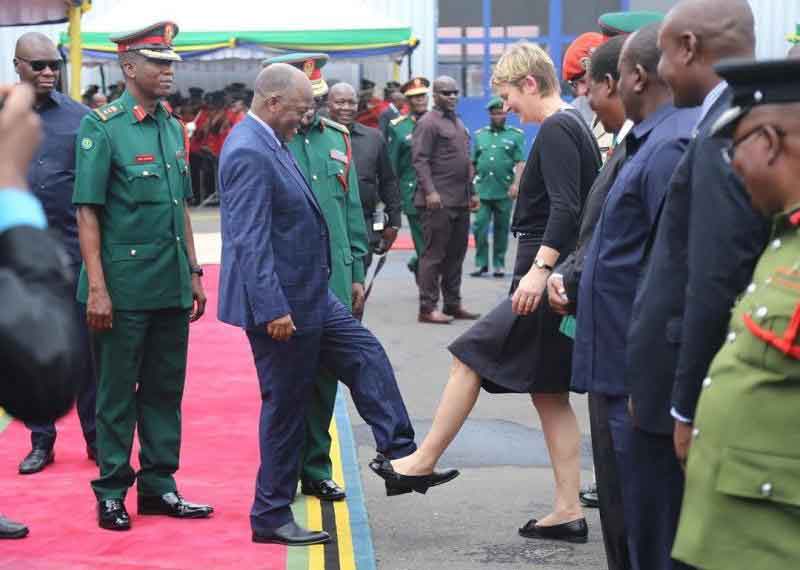×
The Standard e-Paper
Kenya’s Boldest Voice

Tanzania President John Magufuli shakes legs instead of hands as a precaution against the spread of Covid-19 but he has his own ideas. [Archive, Standard]
As the Coronavirus ravages the world, changing life as we know it, some presidents have turned into hard-nosed Covid-19 deniers blithely ignoring recommendations by the World Health Organization.